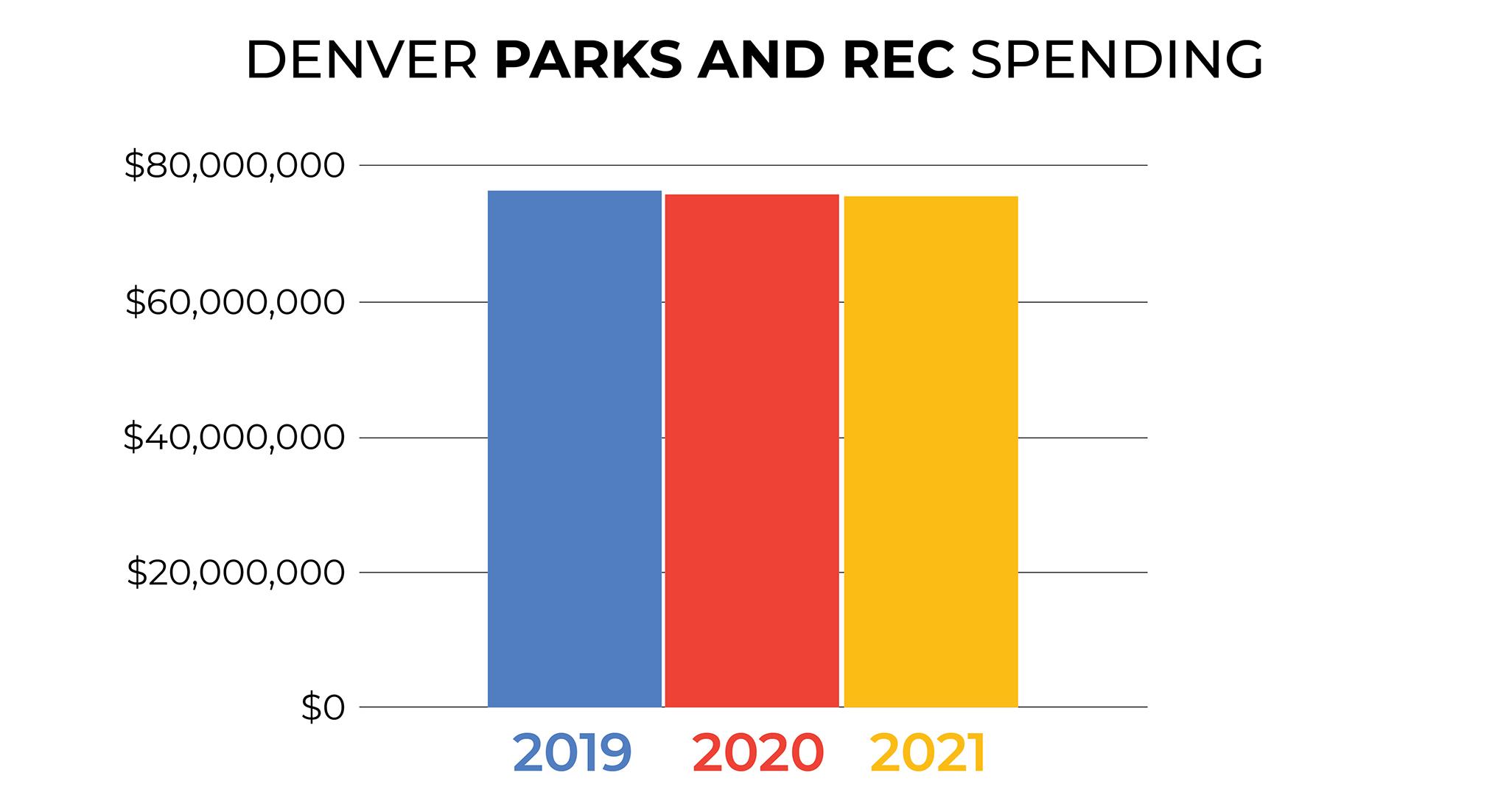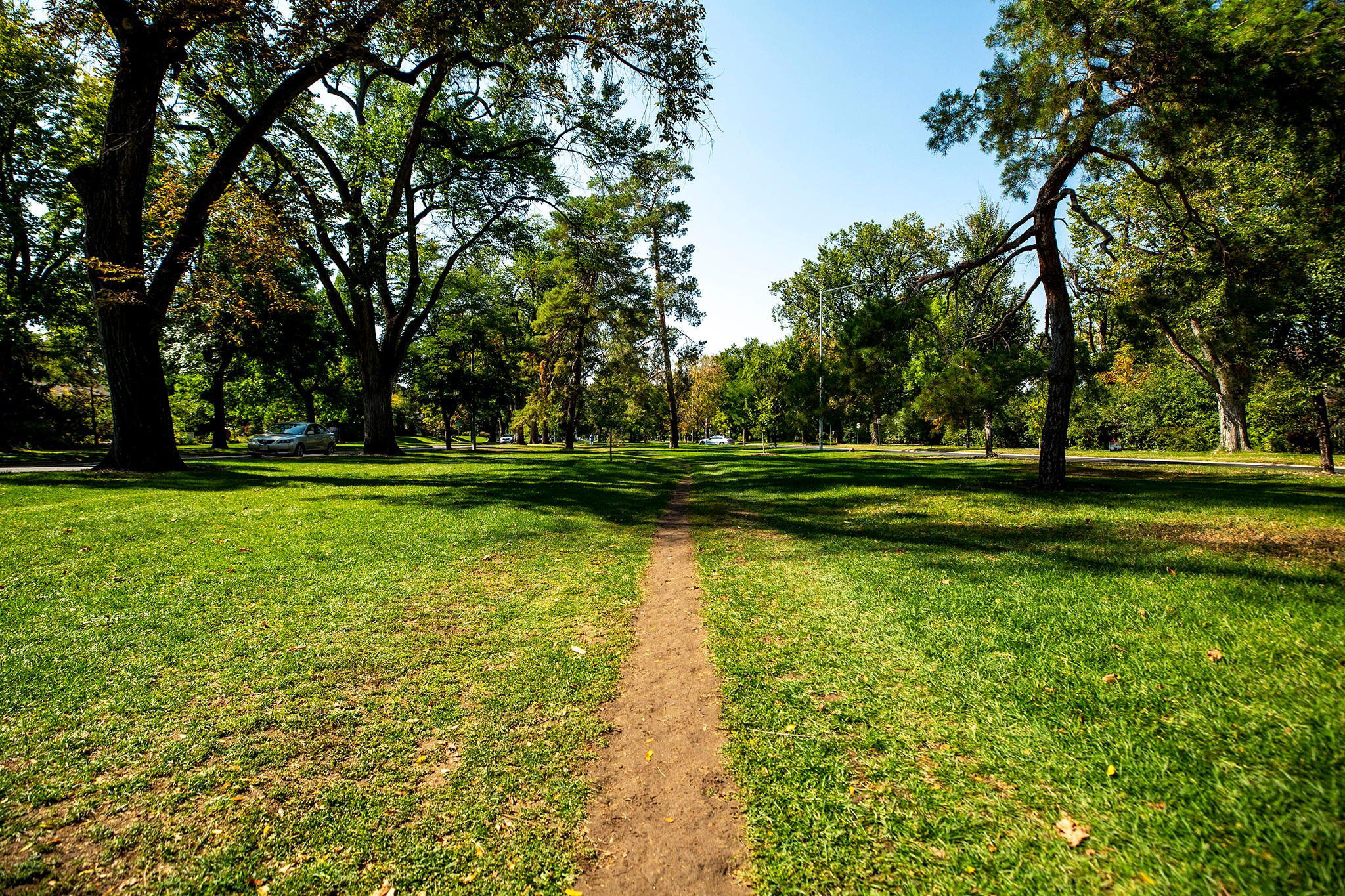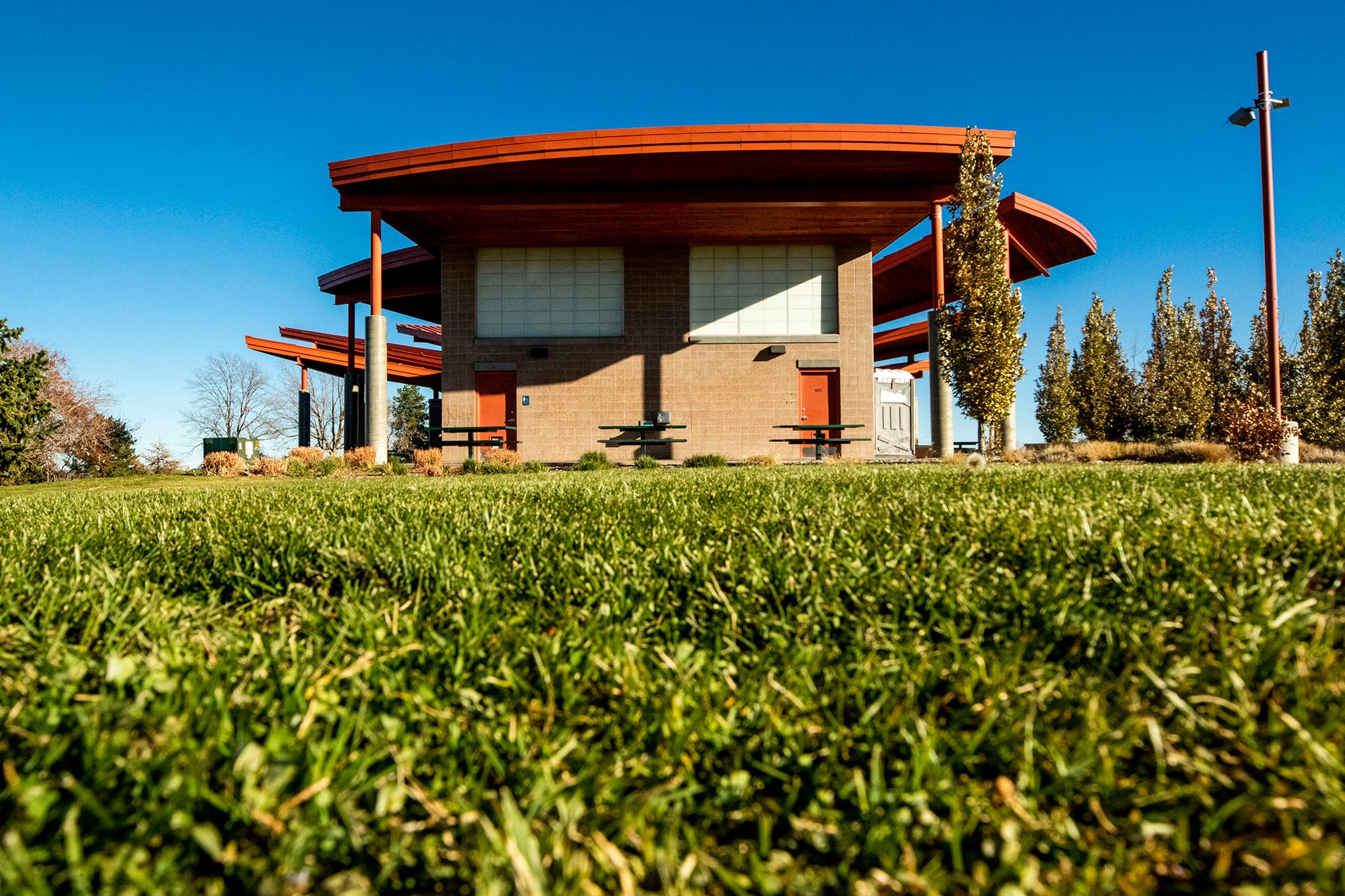The thing about a historic pandemic is that people spend historically low amounts of money in our city. Staying in has replaced going out. Would-be urban tourists are staying in Texas. And a government that depends on sales and tourism taxes is cutting spending on things we're accustomed to having. What are those things? We'll go through each pocket of the city to find out.
There are and will continue to be some visible (and odiferous) cuts coming to parks that will manifest in longer grass, more weeds, fewer flowers, more snow, and possibly more smells because of fewer garbage pickups -- dog-poop trashcans included.
But when it comes to the responsibilities of the Department of Parks and Recreation, shorter hours at some rec centers might be the cut felt deepest by Denver humans -- if and when Denver reopens its 30 community spaces for kids.
"It is what it is," said Yvonne Daley, who was walking through Harvard Gulch Park on a hot fall day. "At this point, we've readjusted."
Denver's rec centers are closed, not because of budget cuts but because of public health orders. Daley said she used to send her son to Harvard Gulch Recreation Center after school but, like every other parent who once relied on the community spaces, has had to deal with the reality of COVID-19 closures.
Parks and Rec Executive Director Allegra "Happy" Haynes said her department plans to reopen rec centers on April 15, 2021. And when it does, eight major rec centers will have shorter hours, including Scheitler, Washington Park, Rude, Montclair, Montbello, Central Park, Carla Madison, and Athmar Park -- but that's if and when public health orders and public safety allow for reopenings.

"We were employing our best positive thinking that we would be back in full operation by April," Haynes told the Denver City Council's budget committee in September.
Haynes called those rec centers "regional." They're bigger and can absorb more cuts with fewer negative effects than "local" and "neighborhood" rec centers. Haynes said rec centers that serve "under-resourced" or lower-income Denverites will not see their hours cut when they reopen.
When rec centers reopen, some will offer fewer programs, too, Haynes said.
Well-manicured parks will get a little dirt under the fingernail.
With 1,800 fewer hours dedicated to trash removal per month, the city has already cut trash collection at parks nearly in half, according to department documents, and will continue to forego previously scheduled garbage pickups next year.
"I hadn't noticed but not sure I would've noticed anyway, said Lester Malachones, who power-walks at City Park weekly. "I used to live in New Orleans, and it wasn't ever like this."
Malachones had not noticed anything off with the park's fields, either. But things will be a bit touch-and-go when it comes to mowing parks and "turf maintenance" (that's government groundskeeper speak for nice grass to play sports on). Fields that typically looked good in 2019 might look less "aesthetically pleasing" this year and next, according to a presentation from the department, because they'll be weeded and mowed less often (weekly and trimmed every three weeks).
"Many of (our employees) treat our parks like their own backyards," Haynes said. "So it's hard for them to imagine not keeping our parks in tip-top shape. And they will do the best they can."
The city watered less this year to save money as the pandemic gripped the economy, but no irrigation cuts are planned for 2021. So will the grass get weird? Knope! (Told you.)
"The overall health of our turf will be maintained," Haynes said.
Parkers (these are people who go to parks) will also see fewer flower beds come flower bed season and could see snow stick around for longer come snow season.
Bathrooms will reopen when public health orders allow, and trees will be planted in anticipation of the emerald ash borer landing in Denver.
Parks and Rec hasn't seen cuts as deep as some other government functions, according to the city's 2021 spending plan. Denver has saved money with rec centers offline, and the parks department is somewhat insulated thanks to the relatively new parks tax. It's not a slush fund, but it will quell the recession's effect on public spaces, Deputy Executive Director Scott Gilmore said.

Parks and Rec keeps most bathrooms closed during the fall and winter because most don't have heat, which means frozen pipes. This year, park bathrooms were closed because of COVID-19, and Parks and Rec had originally planned to keep them off-limits to save money -- even if public health orders eased up next year. But Councilwoman Robin Kniech secured money from the Hancock administration to open restrooms and portajohns with handwashing stations next spring.
"For months ahead, few of us will be travelling, which means our recreation will be here at home and we've got record usage of our parks," said Kniech, who jokingly called herself "the councilwoman of potties" because of her past work getting more public restrooms placed around town. "And so the ability to use those parks safely and comfortably -- the increased usage should not be paired with decreased services."
Washing up with water and having toilets that flush is simply more sanitary than portable toilets or having nothing at all, she added.
Parks and Rec will not let up on planting trees to replace the ones that are doomed once the emerald ash borer lands in the city. The tree-eating bug preys on ashes, the city's second-most prevalent tree. The beetle has been confirmed in Arvada.













